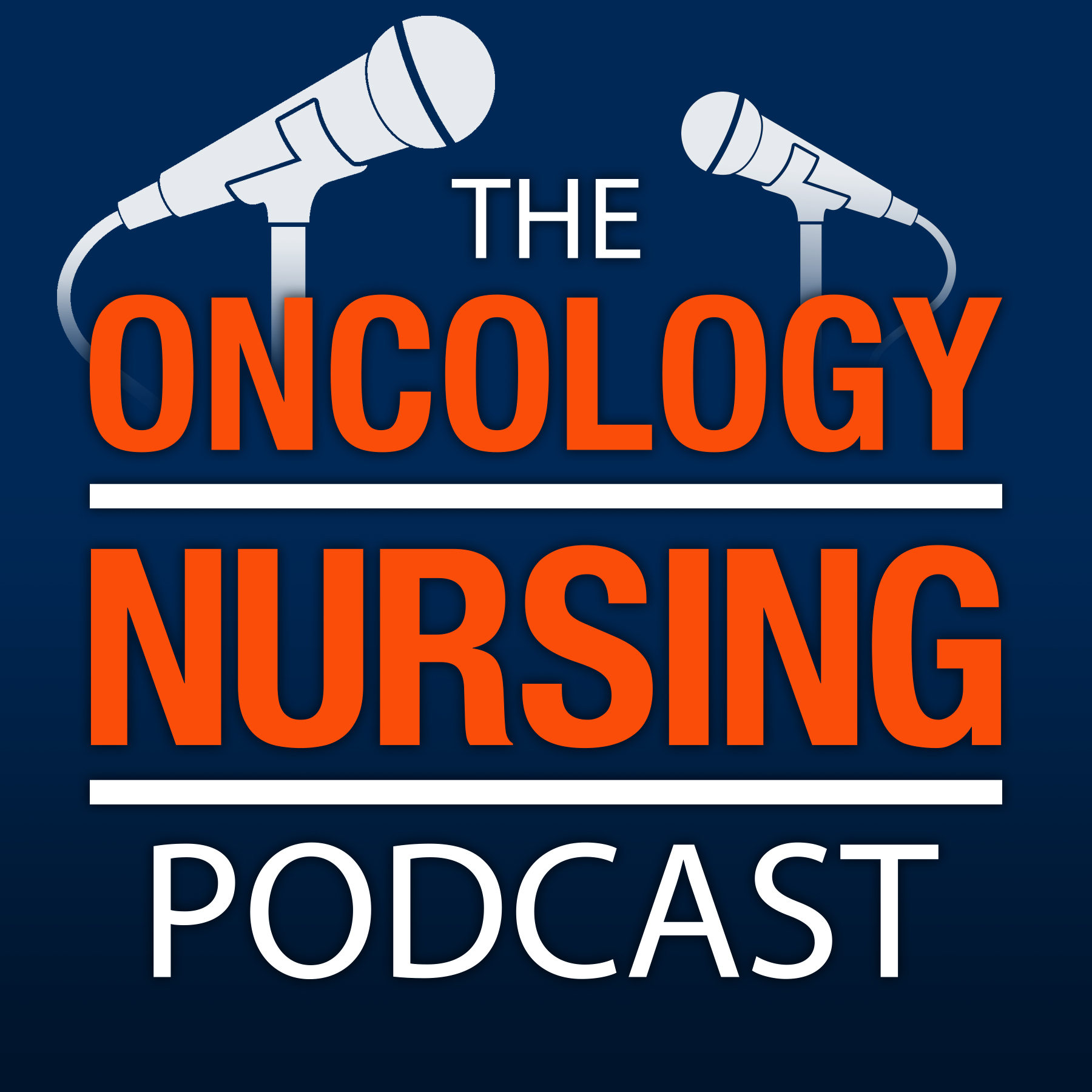
Episode 219: Use Acupuncture and Acupressure to Manage Cancer Symptoms and Side Effects

The Oncology Nursing Podcast
Shownotes Transcript
“Using that view of looking at the whole person, we can provide some acupuncture or acupressure to help maybe reduce anxiety, to help them relax a little bit more, settle their thinking down a little bit, and get some improved sleep,” ONS member Susan Yaguda, MSN, RN, RN manager in integrative oncology at the Atrium Health Levine Cancer Institute in Charlotte, NC, told Stephanie Jardine, BSN, RN, oncology clinical specialist at ONS, during a discussion on using acupuncture and acupressure to manage symptoms and side effects of cancer and cancer treatment. Yaguda also demonstrated example acupressure techniques that nurses can try at home and in their practice. You can earn free NCPD contact hours after listening to this episode by completing the evaluation linked below.
Music Credit: "Fireflies and Stardust)" by Kevin MacLeod
Licensed under Creative Commons by Attribution 3.0 The planners and faculty for this episode have no relevant financial relationships with ineligible companies to disclose. ONS is accredited as a provider of NCPD by the American Nurses Credentialing Center’s Commission on Accreditation.
Episode Notes
The NCPD activity for this episode has expired, but you can still earn NCPD through many other Oncology Nursing Podcast episodes. Find a full list of opportunities).
Yaguda’s 2022 ONS Congress® session: Improving Quality of Life With Acupuncture, Acupressure, and Oncology Massage)
Oncology Nursing Podcast Episode 129: Safely Use Acupuncture as Integrative Care for Symptoms and Side Effects)
ONS Voice articles:
Acupuncture for Cancer-Related Fatigue)
What the Evidence Says About Acupuncture and Cognitive-Behavior Therapy for Insomnia)
Evidence Is Building for Acupuncture as an Opioid Alternative for Cancer Pain)
Oncology Nursing Forum articles:
Acupuncture as a Treatment Modality for the Management of Cancer Pain: The State of the Science)
Effects of Acupuncture and Acupressure on Cancer-Related Fatigue: A Systematic Review)
Assessing the Impact of Acupuncture on Pain, Nausea, Anxiety and Coping in Women Undergoing a Mastectomy)
Clinical Journal of Oncology Nursing article: Acupuncture for Menopausal Hot Flashes)
Current Oncology article: A Systemic Review of Acupuncture for Chemotherapy-Induced Peripheral Neuropathy)
International Journal of Nursing Studies article: Effects of Acupressure on Chemotherapy-Induced Nausea and Vomiting-A Systematic Review With Meta-Analyses and Trial Sequential Analysis of Randomized Controlled Trials)
Acupressure’s Potent Points: A Guide to Self-Care for Common Ailments)
Clinical Practice Guidelines on the Evidence-Based Use of Integrative Therapies During and After Breast Cancer Treatment)
LCI Supportive Oncology video: Acupressure Points Reference)
Memorial Sloan Kettering video: How to Perform Acupressure for Nausea and Vomiting)
Medical Acupuncture article: Information on Battlefield Acupuncture)
To discuss the information in this episode with other oncology nurses, visit the ONS Communities).
To provide feedback or otherwise reach ONS about the podcast, email [email protected]).
Highlights From Today’s Episode
“When people have a disruption in their health—and it could be your emotional well-being, physical, or both—in traditional Chinese medicine, it is reflected in that the flow of qi has been disrupted. Acupuncture and acupressure address this by trying to open up and even out that flow, by either inserting tiny little needles called acupuncture needles, or by exerting gentle pressure—called acupressure—on specific acupoints.” Timestamp (TS) 03:22
“What I really love about traditional Chinese medicine is it’s very holistic. It’s looking at the whole person, at systems working together, and it really meshes beautifully with what I think of as nursing practice, as nurses, that we step back and that we are looking at the whole person. And how maybe an imbalance in one area of one’s life can definitely impact other areas as well.” TS 05:27
“We know that patients who receive neurotoxic chemotherapies can develop painful neuropathy that can really be impactful on their quality of life. We have found, and the literature also supports, that if patients can come in and get some sessions of acupuncture, it can be really impactful on their neuropathy.” TS 08:09
“Using that view of looking at the whole person, we can provide some acupuncture or acupressure to help maybe reduce anxiety, to help them relax a little bit more, settle their thinking down a little bit, and get some improved sleep, which as we all know is a very important part of health and well-being and definitely for our patients something that can better help them manage treatment moving forward.” TS 10:56
“Integrative medicine looks at using complementary therapies in a very collaborative way with what we would consider to be more conventional medical treatment, so that it’s coordinated and very intentionally meshed together to best suit the patients’ needs at whatever point along the trajectory of their care.” TS 12:58
“Some cancer centers do have an integrative medicine department, and oftentimes acupuncture is part of that.” TS 15:56
“Not only could our care partners use some acupressure themselves to help with fatigue, anxiety, and their own sleep difficulties, but it gives them something that they can be easily trained to do to share with their loved one. And sometimes, it’s so important for them to feel like they can contribute positively to their loved one’s well-being in some sort of way. I always encourage, if possible, for a care partner to be involved in the process as well.” TS 20:47
“Using battlefield acupuncture, or acupuncture and acupressure of any kind, is not a replacement for appropriate medical management of symptoms—whether it’s pain, nausea, or anxiety, for example. Think about this as another tool in the toolbox to offer to our patients that has very few side effects. . . . It should never be considered a replacement for that type of care.” TS 32:45